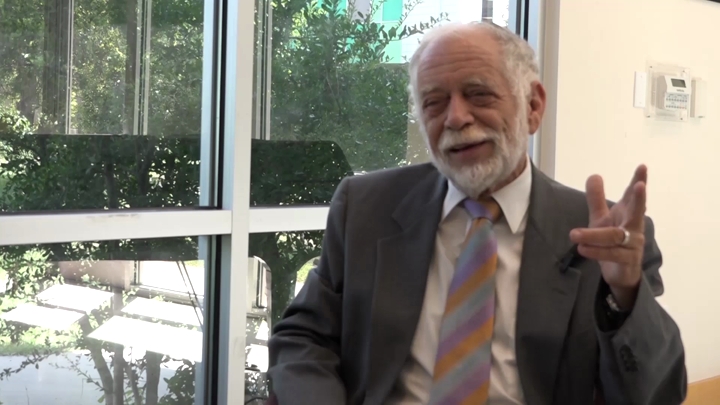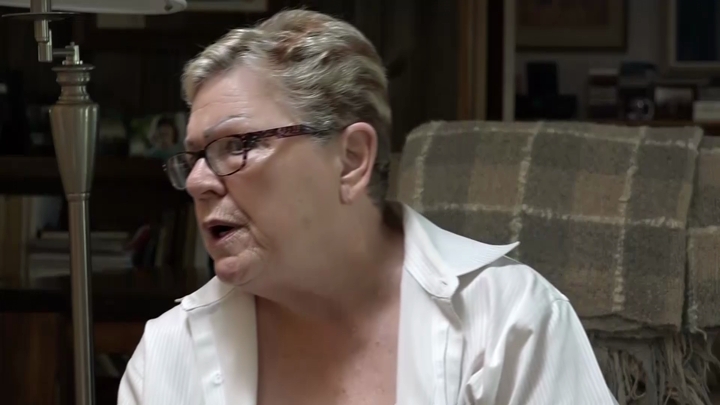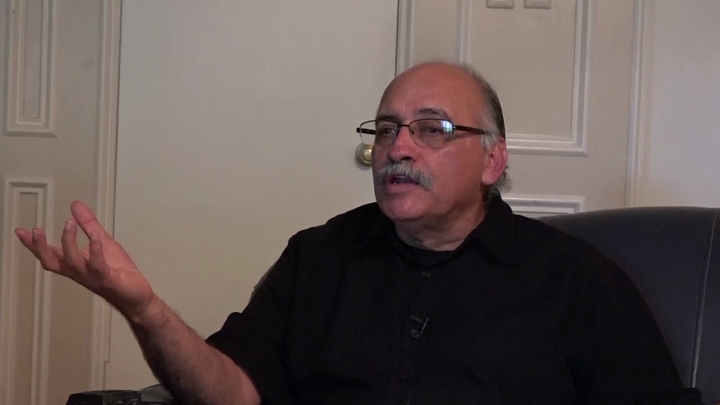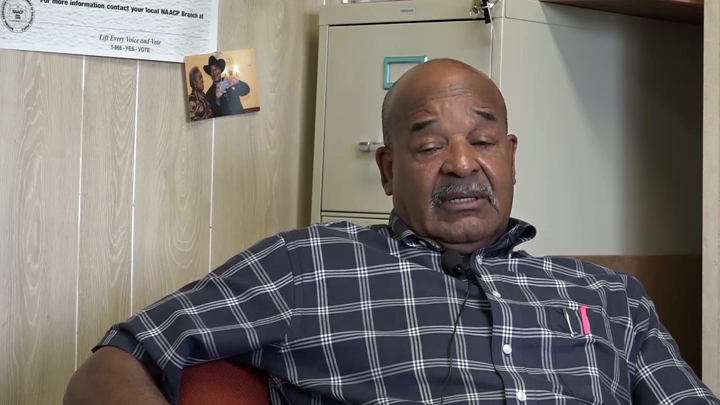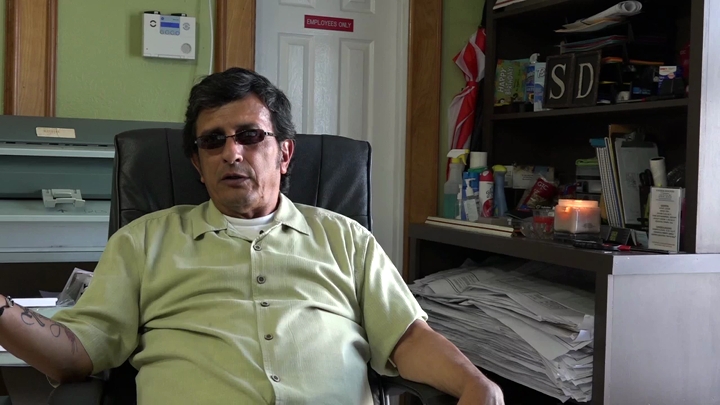Harrington / Protecting the Gray Area, Part Two, "Civil Rights Lawyer"
sign up or sign in to add/edit transcript
Harrington : We went to court judge ruled that you could not do that under the city charter. They had to change the city charter. So we blocked the sale. Then the next thing that Brand tries to do is to amend the charter. Then it became part of that campaign to try to block amendment of the charter. It was very political but very well organized. We did a lot of organizing. We would put up human billboards, where you would be at an intersection and we’d have ten people –don’t tell the hospital, don’t tell the hospital, don’t tell the hospital- it was very visual. Of course we had UFW flags, which are pretty striking because they’re red. We won. Another example of what happens, when we win that election on a Saturday- and of course we know the results within an hour. McAllen at that time was a small or average size town. So there was a reporter, Virginia Raymond. She was a really good friend of Orthal Brand’s. This is ironic because she was a welfare mother originally. This is how the divide and conquer works. Brand befriended her. She was a piece of work. Anytime she referred to me in the paper she always put civil rights lawyer in quotes. {laughs} In quotes, right, as if I am not. So we won that election, but I have another story to tell about her too. And the police cases. We won the election, and I’ll be damned that if the next morning in the newspaper there was an article by her about how we had swarmed City Hall, jumped on the tables, threw chairs around. This was totally false. I was there. Totally false. How do you do that? So I sued her the next day, Monday morning. I had a lawsuit going. It was “The Monitor” and they settled. Even though I’m a strong believer in civil rights and free speech and I generally don’t sue, that had organizing implications because it tried to discredit the movement. A little bit later, Brand ran for mayor- Casso ran for mayor against Brand and barely lost. It was very close. But Brand did the typical tricks, you know, workers of his were sent out of the county on election day to work. But that was the end, Brand lost the next time around. Not to Casso, Casso didn’t run again but it was the beginning of the end. Back to the story about Virginia Raymond. I was doing these trials involving police beating up people. Seven trials maybe where these cops were beating up people. Like I said, they were all most all young guys. I don’t know some sort of machismo comes into play between them and anyway. But Virginia was covering the trial and was just as devoid of reality as when I was talking about the hospital case. It’s like, where are you really sitting in court. So I had filed the case as a class-action. So we were splitting off and doing the individual trials, but then at the end we were going to have that huge class-action. I named Brand as a defendant. The mayor. So what I did then is subpoena Virginia as a witness because of her close connection to the mayor. She had breakfast with him every morning before she wrote a story. So it was kind of a weak legal theory. No, it was really a weak legal theory. But it worked because under the law if you’re subpoenaed as a witness you cannot sit there during the trial. You have to wait in the hallway. So that got her out of the court room. she could not write anymore. So she said to me “Are you going to release me from the subpoena so I can write.” I said “no.” She said, “What are we going to do, I can’t write.” I said, “Well send another reporter.” And that’s what they did and the new reporter was much better gave an accurate view of what was going on in the court room. It wasn’t that I wanted someone who is favorable. I wanted someone who is accurate, and she was so biased, Virginia was, so that was fun- Running her out of the court room.
| Interview | Interview with Jim Harrington |
| Subjects | Court Cases |
| Police and Law Enforcement › Police Brutality | |
| Electoral Politics › Election Campaign Strategies | |
| Electoral Politics › Politicians | |
| Medicine and Health | |
| Medicine and Health › Access to Health Care | |
| Media › Hostile Journalists and Editors | |
| Electoral Politics › Local Elections | |
| Law and Public Policy › Public Assistance › Welfare | |
| Tags | sign up or sign in to add/edit tags |
| Interview date | 2016-06-13 |
| Interview source | CRBB Summer 2016 |
| Interviewees | Harrington, Jim |
| Duration | 00:05:45 |
| Citation | "Protecting the Gray Area, Part Two, "Civil Rights Lawyer" ," from Jim Harrington oral history interview with , June 13, 2016, Austin, Civil Rights in Black and Brown Interview Database, https://crbb.tcu.edu/clips/5500/protecting-the-gray-area-pt-2-civil-rights-lawyer, accessed February 27, 2026 |


